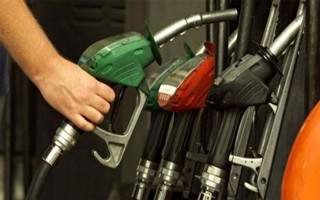A domestic oil supply could tame volatile prices and boost economic production by fueling a more robust power supply, experts say.
By K.R. Chowdhury for Khabar South Asia in Dhaka

With the discovery of oil deep underground, the region’s fortunes — and those of Bangladesh in general – may change.
Economists, energy experts and consumers are cautiously welcoming the discovery of major oil reserves in the Sylhet region, announced by the state-run Bangladesh Oil, Gas and Mineral Corporation (Petrobangla) on May 2nd.
Currently, Bangladesh serves all of its domestic oil needs through imports. But Petrobangla chairman Hussain Monsur said the state-run company has detected oil reserves of 137 million barrels at the Kailashtila gas field in Sylhet. Of this amount, 55 million barrels could be recovered commercially, with a market value of 450 billion taka ($5.5 billion), Monsur said.
Domestic oil means lower inflation
Economists say domestic oil resources could help the government contain inflation linked to fuel price hikes on the international market – and save on costly petroleum subsidies.
“Our domestic oil, if explored, would save our huge subsidy for the import and selling of petroleum products in Bangladesh. In the current fiscal year, the government has spent Tk 10,000 crore ($1.2 billion) as an oil subsidy,” former finance ministry adviser A.B. Mirza Azizul Islam told Khabar.
Syed Yousuf Hossain, chairman of the Bangladesh Energy Regulatory Commission, said the government had to increase fuel and power prices four times to account for petroleum price hikes on the international market.
“We fall in trouble when the prices of petroleum products go up on the international market. The domestic supply of oil, if available, would improve the power sector,” A. S. M. Alamgir Kabir, chairman of the Bangladesh Power Development Board (BPDB) told Khabar.
Bangladesh imports up to 25 million barrels of crude oil from Middle Eastern countries and Indonesia every year, energy ministry figures show.
From the ground to the power lines
To eventually import less, the nation must adapt its infrastructure, which relies overwhelmingly on gas. More than 76% of Bangladesh’s power units are gas-fed.
Mizanur Rahman, a director of BPDB, told Khabar that out of a potential of 5,500MW from all available sources, oil-fed power plants contribute only 1,500MW of electricity.
“So, we need more fuel to exploit the full potentiality of our oil-burnt plants,” said Rahman. “The demand for oil was going up day-by-day.”
BPDB chairman Kabir told Khabar the country’s current overall daily demand for electricity was 6,500MW, while production stood at 5,500MW– resulting in hours of power outages, including in Dhaka.
A catalyst for business
Bangladesh’s business sector is hungry for an improved power supply.
“Our exports will increase at least by 25% if we are given uninterrupted power supply in the factories. We will earn at least Tk 409.5 billion ($5 billion) more,” Abdus Salam Murshedy, former president of Bangladesh Garments Manufacturers and Exporters Association, told Khabar.
The country’s Ready-Made Garment industry (RMG) earned Tk 1.4 trillion ($18 billion) in 2010-11, accounting for 80% of all Bangladeshi exports.
“At present, the big factories use generators to run their factories,” said Murshedy. “But all factories cannot afford generators and they remain idle for hours for power outages.”
One unit of BPDB electricity costs Tk 6.5 ($0.08) while generators cost at least Tk 9 ($0.11) for the same unit, Murshedy said.
The consumer view
Bangladeshis weary of constant load-shedding and sudden government price hikes remain sceptical.
“This is not my headache, whether it is foreign oil or ours,” pharmaceutical company sales agent Abdus Sattar told Khabar. “I am interested in knowing whether the price of oil comes down.”
On average, Sattar spends Tk 500 ($6) daily on fuel, and sees the price going up daily due to fuel hikes on the international market.
Banker Rafiqul Islam is more optimistic.
“If we can meet our oil demands from (our) own source, we would not look at the international market all the time,” he said.
“Prices of all commodities go up with a minimum hike of fuel prices, making people’s life unbearable,” he said.








